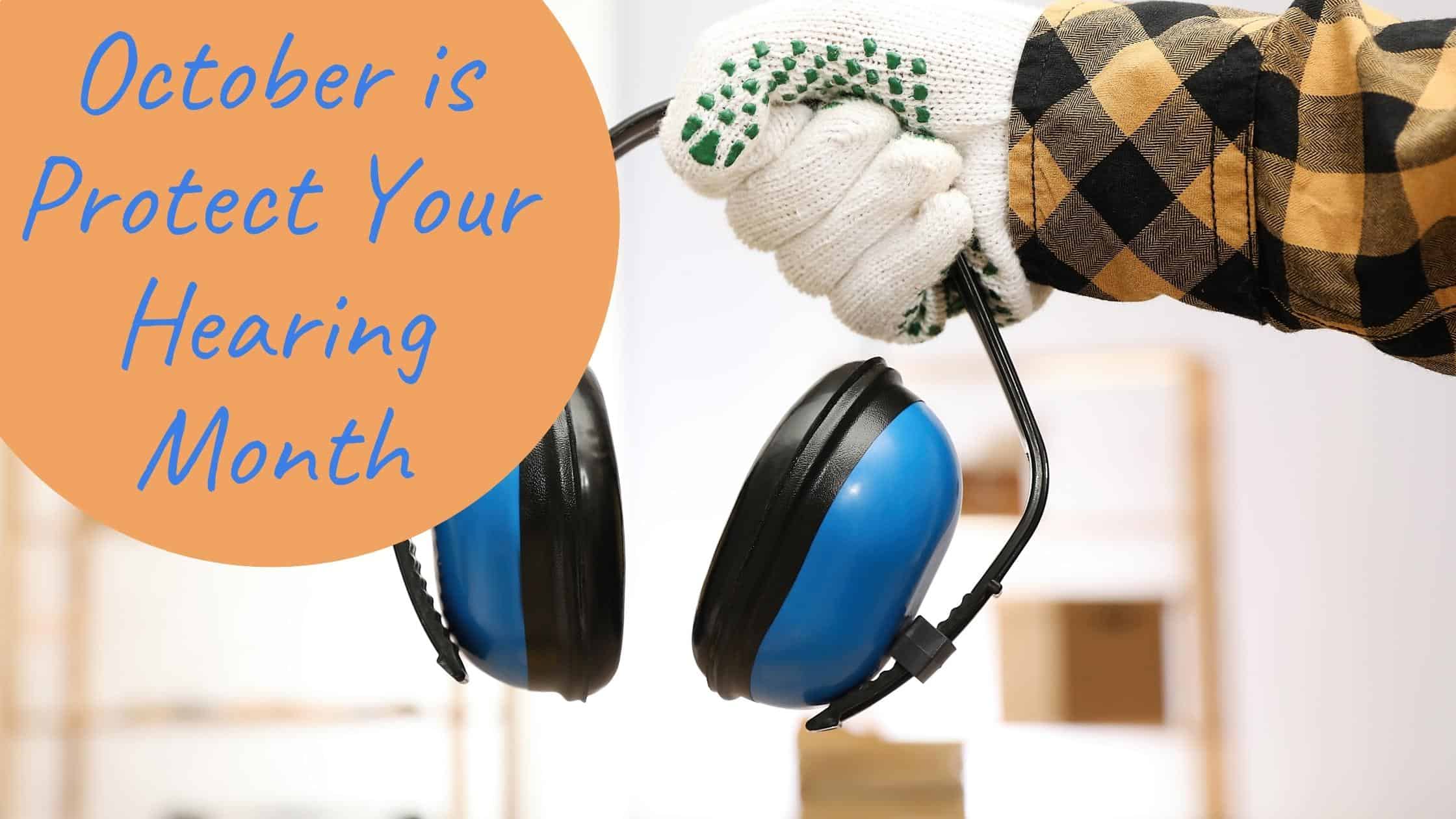Do you ever feel like the sounds around you are so loud that they may be damaging your hearing? This October is National Protect Your Hearing Month, an annual campaign led by the National Institute on Deafness and Other Communication Disorders (NIDCD) to educate and raise awareness around the damaging effects of sound. This month is a great time to learn when and where sound may be loud enough that it could damage your ears permanently.
Hearing Loss affects People of All Ages
Commonly associated with older adults, age-related hearing loss is the most common type of hearing damage. Also referred to as presbycusis, age-related hearing loss occurs due to changes in the ear as we age. It affects one in three people over 65 and half of those over 75! However, hearing loss is not a condition which only affects seniors. The World Health Organization acknowledged that approximately 1.1 billion teenagers and young adults are at risk for developing hearing loss. They attribute this to a generation that normalizes the use of headphones and personal listening devices, along with oppressively loud live music and sports arenas. The CDC reports that based on a 2011-2012 CDC study approximately 10 million adults (6 percent) in the U.S. under age 70 have features of their hearing test that suggest a hearing loss in one or both ears from exposure to loud noise. The study estimated that around 17 percent of teenagers, ages 12 to 19, showed signs of noise-induced hearing loss on their hearing tests.
Understanding Noise-Induced Hearing Loss
Noise-induced hearing loss occurs when sounds are intense enough to cause vibrations that damage the inner ear. The outer ear collects sound and sends it to the inner ear, where tiny hair-like cells send sound information to the brain where it is processed and comprehended. When the sounds cause excessive vibration, these cells can shatter, partially impeding sounds which the brain can receive. This may not happen all at once. It is common for hearing loss to show itself subtly and become more severe over decades. Often people don’t realize they have hearing loss until they struggle to hear, even in the quietest of environments.
The Dangers of Unaddressed Hearing Loss
While hearing loss begins in the ear, persistent issues revolve around communication. Hearing loss causes people to have to frequently ask others to repeat themselves and cause them to misunderstand what others are saying. This can cause stress on your social situations and subsequently on your relationships. At home, common misunderstandings can cause resentment and at work, misunderstandings cause a noticeable loss in earnings on a large scale. A study from the Better Health Institute found that on average, those with untreated hearing loss earned $30,000 less than their contemporaries with normal hearing. These strains on career and social interactions can lead to loss of self-esteem, chronic depression, and a lack of independence.
In addition, studies have found that untreated hearing loss can lead to lower scores on cognitive tests, which corresponds with the degree of hearing loss. It also affects the likelihood of developing dementia and experiencing accidents, falls, and hospitalizations.
Know When Your Hearing is at Risk
It’s important to know when and where your hearing could be at risk, because once it’s damaged it cannot be reversed. Sound is measured in decibels and any decibel reading of 85dB or higher can cause permanent hearing loss. It is not just the level of the sound but the length of exposure. It takes 8 hours of exposure at 85dB to cause some damage, however, as the decibel levels rise the time it takes quickly shortens. At 88dB the same damage can occur after just four hours and at 100dB, hearing damage occurs in about 15 minutes.
Protecting Your Hearing
There are free apps on most smartphones that help to detect the level of sounds in the places you frequent most. If you detect a reading which is consistently over 85dB, it’s a good idea to protect your hearing. Earplugs and protective headphones can lower decibels by 15-33dB. In addition to ear protection, make sure to take listening breaks so your ears can rest and if a sound is too loud, taking some distance can greatly lower the amount of noise exposure. However, if you feel like you already have some damage to your hearing caused by noise, use this October as a call to action. Schedule a hearing test so we can help you find the best solution for your hearing needs.

